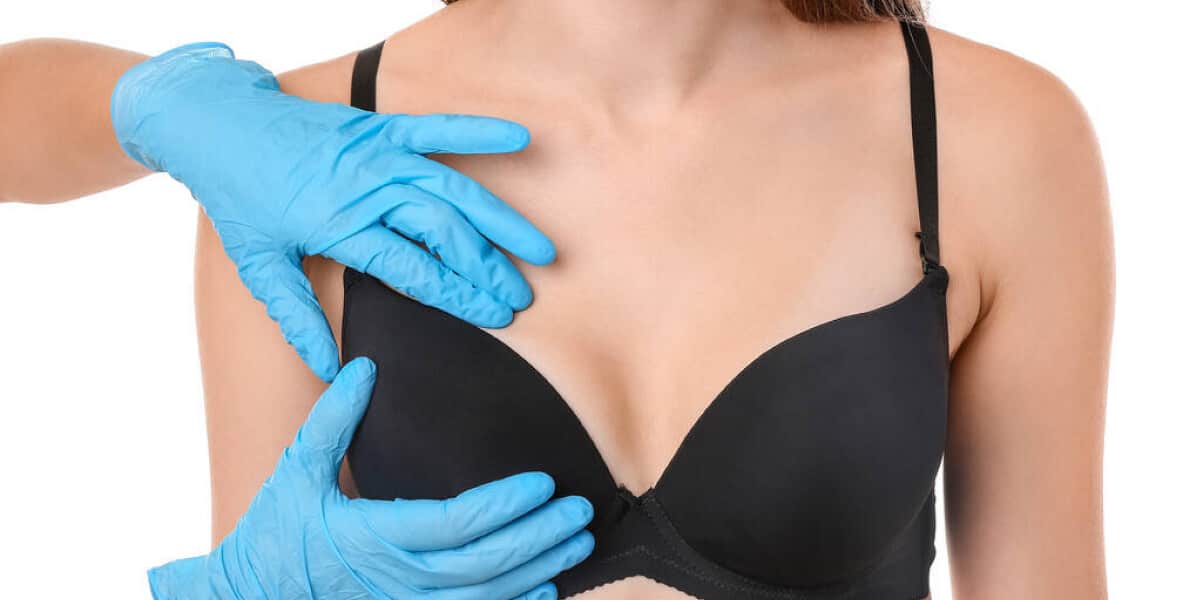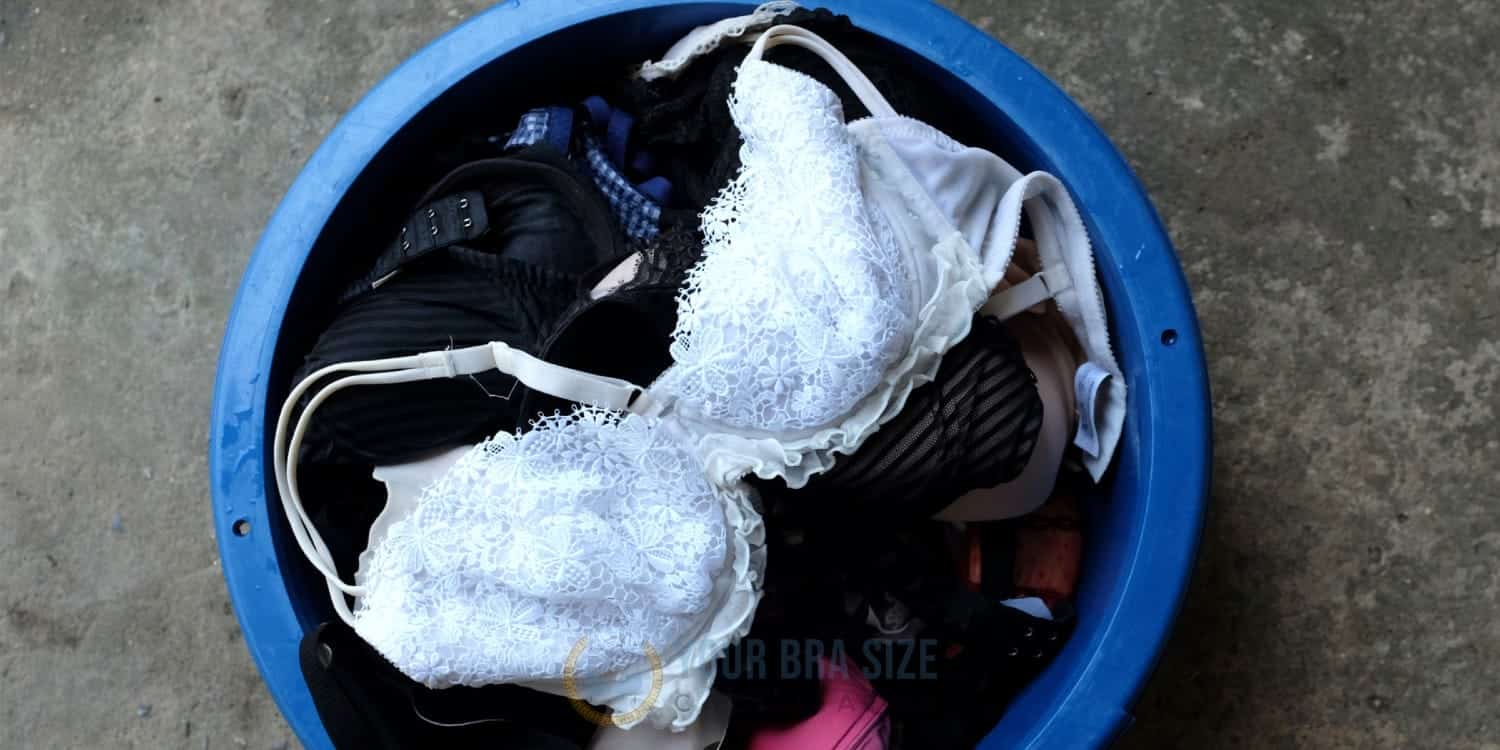Have you ever wondered if wearing a bra during surgery is okay? It may seem like an odd question, but it’s one that anyone facing surgery should ask. While bras are relatively harmless and comfortable, the wrong type can cause unwanted problems when undergoing surgery. Knowing what kind of bra is safe for your procedure could save you from unnecessary complications. In this article, we will explore the topic of wearing a bra during surgery: its risks and benefits, as well as how to choose the right one for your needs.
There are pros and cons when considering whether or not to wear a bra while having surgery. On the one hand, certain types of bras provide support and comfort, which can be beneficial in reducing pain levels post-surgery. But on the other hand, some materials used in constructing bras create potential hazards due to their ability to collect bacteria or interfere with medical equipment such as X-rays and ultrasounds. Additionally, even though most doctors agree that wearing a bra during surgery is usually safe under general anesthesia, there are still precautions patients should take before deciding what kind of garment they would prefer for their procedure.
In conclusion, choosing whether or not to wear a bra during surgery requires careful consideration, given all the factors involved. This article discusses these considerations so readers can decide which option is best for them and their situation. Read on to learn more!

Definition Of Surgery
Surgery has been a known medical procedure to treat conditions or illnesses. While in the past, doctors used primitive methods such as sponges and blades to perform surgeries, and they now have advanced tools and techniques. Simply put, surgery is an invasive medical treatment where a physician conducts a surgical operation on a patient’s body to diagnose or address specific health issues.
In essence, surgery involves carefully cutting into the skin of a patient for the doctor to be able to examine the area further. Various instruments can be used during this process, including scalpels, forceps, and lasers, depending on what kind of procedure needs to be done. Afterward, stitches are typically applied so that the wound can heal properly with minimal scarring.
At its core, surgery is an intricate yet significant form of medical care, regardless if it’s being utilized as a part of diagnosis or therapy. As we explore this topic, let us now turn our attention to different types of surgeries and how they affect patients before and after operations.
Types Of Surgery
There are many types of surgery, each with its characteristics and procedures. Laparoscopic surgery is done through small incisions in the abdomen. This minimally invasive procedure reduces recovery time and the risk of infection. Bariatric surgery is a surgical weight-loss option for those unsuccessful at losing weight through diet and exercise alone. Cosmetic surgery includes procedures that reshape or enhance physical attributes to improve personal appearance. Robotic surgery uses advanced technology to allow surgeons greater precision while operating inside the body. Vascular surgery involves restoring blood flow, often by repairing veins or arteries using grafts or stents.
These different types of surgeries require patients to prepare differently depending on their health needs. One common element is whether wearing a bra during the procedure is safe. Although there isn’t an exact answer since it depends on the specific situation, doctors will generally advise against wearing one due to potential complications such as excessive movement or entanglement of wires and tubes used during the operation. The following section will discuss why a patient might choose to wear a bra during surgery despite any associated risks.
Reasons To Wear A Bra During Surgery
Coincidentally, the right bra during surgery can make all the difference. From providing breast support to helping with posture and pain control, here are some reasons why you should consider wearing a bra during your operation:
- Breast Support: A surgical bra provides extra support for breasts of any size. -It prevents them from bouncing or shifting during procedures that require patients to be in different positions. -The fabric will also help hold dressings in place after an incision.
- Posture Support: Wearing a surgical bra helps keep the chest area stable while moving around the operating table. -This allows surgeons better access to the site they are working on without worrying about movement from the patient’s body parts.
- Pain Control: When properly fitted, a surgical bra offers additional padding and cushioning to reduce pressure points and provide comfort before and after surgery.
By wearing a bra during surgery, you benefit physically and mentally as it is one less thing to worry about when undergoing treatment. It can give added peace of mind knowing you have taken precautionary steps to ensure your health and safety throughout the procedure.
Reasons Not To Wear A Bra During Surgery
Despite the potential advantages of wearing a bra during surgery, there are several reasons why it should not be worn. The most important consideration is that bras can cause problems and risks when used in medical settings. This includes skin irritation from straps or fabric rubbing against incisions, constriction of breathing due to tight bands or clasps, and other restrictions on movement or flexibility caused by the design of specific bras.
| Benefits | Disadvantages |
| Comfort & support | Skin irritation |
| Improved posture | Restricts breath |
| Increased confidence | Limits mobility |
| Better circulation | Possible infection risk |
These issues may lead to further complications with healing after surgery, so it’s best to avoid wearing lingerie during an operation if possible. In some cases where a patient must wear clothing for religious purposes or comfort needs, doctors will take measures such as applying ointment beforehand to reduce friction and minimize skin irritation. Additionally, any metal components found in traditional bras should be avoided due to the increased risk of interference with medical equipment. Ultimately, patients should discuss all options with their surgeon before having a procedure done so they can make an informed decision about what is safest for them.
When making this determination, surgeons and healthcare providers must consider each case carefully before deciding whether no-bra-surgery or alternative forms of protection would be more beneficial. Depending on the situation and specific details surrounding the patient’s condition, other guidance may be necessary to ensure that all procedures go smoothly with minimal complications or risks associated with bra use during surgery.
Guidance For Patients
Patients may have questions about how to prepare for surgery. Pre-operative tips include dressing appropriately, following instructions from the medical team, and ensuring that all necessary items are brought with them. Patients must wear comfortable, loose-fitting clothing on the day of their procedure. Patients should also avoid wearing jewelry or other metal objects during surgery as these can interfere with imaging equipment used in some surgeries.
When considering what type of clothing to wear, many people wonder if they should wear a bra during surgery. Generally speaking, it is best not to wear a bra under surgical scrubs unless instructed otherwise by a doctor or nurse. The reason is that bras can restrict movement and cause discomfort when lying down for extended periods. Additionally, straps and clasps may need to be removed before the start of any procedure, which could delay the process unnecessarily.
Postoperative care is just as crucial as pre-operative preparation. After leaving the hospital or clinic, patients must adhere strictly to their follow-up appointments and take prescribed medications as directed by their physician to ensure optimal recovery. Following these guidelines will help promote healing and reduce postoperative complications.
This section guided patients preparing for surgery, including information regarding surgical clothing choices, like whether or not one should wear a bra before entering the operating room. Moving forward, we’ll explore the benefits and risks of wearing a bra during surgery so readers can decide what type of clothing is best suited for their upcoming procedure.
Benefits And Risks Of Wearing A Bra During Surgery
Wearing a bra during surgery can be beneficial for some patients. It may give women added comfort and security if a bra in everyday life usually supports their breasts. Also, wearing a bra can help to minimize movement in the chest area during surgery, potentially reducing the risk of complications.
However, there are also risks associated with wearing a bra during surgery. The tightness of certain types of bras could impede blood circulation or compress nerves, leading to pain after the procedure. Additionally, while most surgical gowns have front snaps that allow access to breasts if necessary, metal parts on regular bras can interfere with medical equipment used during surgery.
Patients need to discuss the potential benefits and risks of wearing a bra during surgery with their doctor before making any decisions. Different factors, such as the type and complexity of the procedure, should be considered when deciding whether or not to wear a bra during surgery.
Frequently Asked Questions
What Types Of Bras Are Appropriate For Surgery?
When preparing for surgery, many factors need to be considered. One of them is the type of bra you should wear during and after the operation. With such wide varieties in today’s market, how do you decide which suits your needs? This article will discuss various types of bras worn during and post-surgery, such as supportive, surgical, and postoperative bras.
Supportive bras are specially designed with extra support to ensure comfort throughout the medical procedure. They typically feature thick straps and a wide band underneath the bustline for stability. Many surgeons may even recommend wearing this bra before surgery since it helps reduce movement under anesthesia or during recovery time. Additionally, these garments provide additional protection from any potential skin irritation caused by medical equipment used during surgery.
Surgical bras have been specifically developed for those undergoing significant operations like mastectomies or reconstructive procedures. These special garments give much-needed support while also providing coverage over any incisions made during a process. Most models come equipped with adjustable straps that allow users to adjust the fit according to their needs; they also often include pockets where drains can be inserted if necessary. In addition, these full-coverage designs help minimize swelling and promote healing post-surgery.
Postoperative bras offer more specialized features than other types of lingerie due to their specific design purpose: helping women recover from breast surgeries such as augmentation or reduction mammoplasties quickly and safely. These garments feature multiple layers of soft fabrics that protect sensitive areas around incision sites while reducing pressure on stitches; they also provide adjustable compression levels, which aid in overall lymphatic drainage and improve circulation coming back through affected parts of the body after surgery has been completed.
No matter what type of bra you choose for your pre- or post-surgery needs, selecting something comfortable yet supportive enough to meet your requirements when recovering from an operation is essential. Consulting with a doctor beforehand is always recommended when selecting attire for medical procedures – doing so ensures that all safety protocols and guidelines are correctly followed, leading to a successful outcome!
Should I Talk To My Doctor About Wearing A Bra During Surgery?
When it comes to wearing a bra during surgery, discussing the matter with your doctor is the best way to ensure you follow their guidelines. It’s essential to know which types of bras may or may not be appropriate for the procedure and any potential risks associated with wearing one while undergoing surgery.
To ensure that everything goes smoothly on the day of your operation, having a conversation with your doctor about what type of attire would be acceptable can help provide answers to questions regarding whether or not you should wear a bra:
- What material should my bra be made from?
- Is cotton allowed?
- Are there certain materials I should avoid?
- Will wearing a bra interfere in any way with the surgical procedure?
- Could it cause issues with anesthesia delivery or monitoring equipment during the operation?
- Can I safely wear an underwired style without risking injury?
- Are there specific guidelines my doctor recommends I follow when selecting a bra for surgery?
- Should I look into special medical-grade garments explicitly designed for use during procedures like this one?
Considering these questions when talking to your physician will give you a better understanding of what precautions need to be taken before going into surgery. Your doctor’s advice could also reveal alternative solutions if wearing a traditional bra isn’t possible due to health concerns or other reasons. Ultimately, consulting with them beforehand allows everyone involved—from yourself to your healthcare team—to feel more comfortable and confident about entering the operating room.
Is There A Difference Between Wearing A Bra During General Or Specific Types Of Surgery?
Ah, the age-old question of whether one should don a bra before surgery. As if it weren’t already hard enough to decide between saline and silicone implants! In all seriousness, though, this is an important consideration that must be given when deciding on what type of clothing to wear during any surgical procedure. It may seem like a silly inquiry, but it’s essential to consider the differences between wearing a bra during general or specific types of surgery.
Concerning general surgeries such as hernia repairs, appendectomies, and laparoscopies, women are advised not to wear bras because they can restrict breathing while under anesthesia. Depending on the type of bra worn (underwire vs. non-underwire), there can also be other potential risks depending on how tight the material fits around the rib cage resulting in restricted blood flow or pain after being released from anesthesia. It’s highly recommended that pregnant or breastfeeding women who need these kinds of surgeries opt out of wearing a bra altogether for additional comfort and safety measures.
When it comes to more specific procedures such as breast augmentation surgeries, mastectomy operations, or reconstructive plastic surgery, many surgeons allow and even encourage wearing a supportive yet comfortable sports bra. This allows for better access for doctors and nurses without risking further discomfort postoperatively, potentially delaying recovery time and significantly limiting mobility until total healing has been achieved.
Regardless of the type of surgery you have, it’s always best practice to consult your doctor before making any wardrobe decisions – especially those involving restrictive undergarments! After all, patient safety will always come before fashion trends when it comes to medical treatments, so make sure you take every precaution necessary before surgery.
Are There Any Special Considerations For Wearing A Bra During Surgery If I’m Pregnant?
When it comes to wearing a bra during surgery, pregnant women may have special considerations they need to consider. It’s essential to understand the difference between general and specific surgery types when deciding whether to wear a bra. For those who are expecting, some distinct issues related to wearing a bra for surgery should be considered.
Pregnant women may feel more comfortable without the extra constriction around their chest area caused by wearing a bra. This can help them relax before and during surgery and reduce any discomfort associated with having anything tight on their body while lying down in pre-operative positioning. Additionally, certain materials used in bras may cause irritation or skin reactions if left against exposed skin areas for long periods, which could further delay recovery post-surgery.
Finally, expectant mothers should consult with their doctor before undergoing any surgical procedure about what kind of clothing is recommended. Depending on the operation’s specifics, different measures may be taken, such as refraining from wearing jewelry or avoiding all forms of restrictive clothing like underwire bras. Although each case is unique and depends upon individual factors and medical history, knowing ahead of time will ensure that everything runs smoothly throughout the process.
Therefore it is highly advisable for pregnant women considering surgery to talk with their physician beforehand regarding any special considerations needed when selecting an appropriate outfit – including whether or not a bra should be worn.
Are There Any Special Instructions For Wearing A Bra During Surgery If I’m Breastfeeding?
When a mother is breastfeeding, there are specific considerations that must be taken into consideration when wearing a bra during surgery. Like any other patient preparing for surgery, breastfeeding mothers have to take special instructions and precautions to ensure the safety and health of their babies. Knowing these instructions can help make the surgical experience much smoother for both mother and child.
As with all surgeries, it’s essential to talk to your doctor before making any decisions related to clothing or attire options. If you’re breastfeeding while undergoing surgery, your physician may recommend avoiding bras altogether due to potential risks associated with them being too tight around the chest area while under anesthetic. For example, they might suggest wearing compression garments such as a sports bra instead of an underwire bra. This type of garment will provide more support without constricting movement or circulation during surgery.
In addition, if you plan on expressing milk before the operation, then you should also speak with your healthcare provider about how this could impact the timing of your procedure (as well as feeding schedules). Depending on the circumstances, your surgeon may advise taking extra time between feedings so that breastmilk does not interfere with sedation drugs used during anesthesia. Ultimately, it’s best to discuss all possible scenarios with your medical team – from types of clothing worn at the hospital through post-surgery recovery – to achieve optimal results for both mother and baby throughout the entire process.
Conclusion
I’ve explored the implications of wearing a bra during surgery, and it’s clear that there are many considerations to consider. Although some types of bras may be suitable for certain surgeries, ultimately, it’s up to you and your doctor to decide what works best for your body and situation.
This all serves as an allegory for life in general. Just like with surgery, we all have different physical needs and preferences when it comes to living our lives; no one else can decide for us. We need to find ways to navigate life responsibly while listening to our hearts and minds along the way.
If you’re considering wearing a bra during surgery or any other medical procedure, speak with your doctor before deciding. They’ll be able to provide personalized advice based on your unique circumstances. Only then will you be fully prepared to make an informed choice about how best to approach the situation – just as is faithful with so much else in life!








